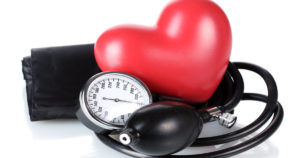February is American Heart Month
January 29, 2021 Every February, organizations across the nation like the American Heart Association (AHA), the National Heart, Lung, and Blood Institute (NHBLI) and The Heart Truth join together to commemorate American Heart Month by encouraging individuals to reduce their chances of developing heart disease by making healthy lifestyles choices. Cardiovascular disease runs rampant in the United States, with nearly half of the adults having some type of heart disease like high blood pressure, coronary artery disease, or myocardial infarction (heart attack). With February quickly approaching, now is a great time for Americans to get actively involved with their heart health.
Every February, organizations across the nation like the American Heart Association (AHA), the National Heart, Lung, and Blood Institute (NHBLI) and The Heart Truth join together to commemorate American Heart Month by encouraging individuals to reduce their chances of developing heart disease by making healthy lifestyles choices. Cardiovascular disease runs rampant in the United States, with nearly half of the adults having some type of heart disease like high blood pressure, coronary artery disease, or myocardial infarction (heart attack). With February quickly approaching, now is a great time for Americans to get actively involved with their heart health.
Heart Disease Statistics
The first American Heart Month was nearly 60 years ago. Since its inception, the federally designated month has run effective nationwide awareness and outreach programs with the goal of reducing heart disease. Heart disease is the number one leading cause of death in American men and women in the United States. Here are some other important facts on heart disease from the Centers for Disease Control and Prevention (CDC):
- One person dies every 36 seconds from cardiovascular disease
- Heart disease is responsible for 1 in every 4 American deaths. Altogether, approximately 655,000 American men and women die from heart disease each year
- Coronary artery disease (CAD) and heart attack are some of the most common types of cardiovascular disease. More than 18 million adults have CAD and over 800,000 Americans have a heart attack annually
- Individuals with poor cardiovascular health have a higher chance of experiencing severe illness related to COVID-19
Certain individuals are more at risk for developing heart disease than others are. Known risk factors for cardiovascular disease include physical inactivity, smoking, unhealthy diet, being overweight or obese, having high blood pressure, high blood cholesterol, or diabetes, and excessive alcohol consumption.
This Year’s Theme
To celebrate American Heart Month this year, the theme is seven days of self-care. The day-of-the-week theme can be celebrated by people of all ages, and is a great way to bring the family together as every member strives to reach their positive personal health goals. Here is the theme for each day:
- #SelfcareSunday. For self-care Sunday, create a self-care checklist for the week. This checklist can include activities like working out, meditating, going on walks, reading, and more
- #MindfulMonday. Learn your important heart health numbers, like blood pressure, blood sugar, and cholesterol levels. If you do not know your numbers, make an appointment with your doctor
- #TastyTuesday. Try cooking a delicious, heart-healthy meal at home. Not only can eating in be much healthier than eating out, but it is usually less expensive, too!
- #WellnessWednesday. Remember your heart when it comes to your wellness routine. One great way to prioritize your heart health, for example, is to do cardio when you work out. Some great ways to incorporate cardio into your workout routine include jumping rope, using an elliptical machine, swimming, cycling, rowing and running at a moderate pace. If you have health concerns about working out, talk to a trusted medical professional
- #TreatYourselfThursday. Go easy on yourself and have a restful and fun evening!
- #FollowFriday. Share a person who inspires you to take good care of your heart and to practice self-care
- #SelfieSaturday. Tell your friends and followers what some of your favorite ways to take care of your heart are, like going on walks with your dog, jogging, or cooking delicious, heart-healthy meals
Do not forget to tag #OurHearts in your posts while you are celebrating this year’s seven days of self-care. Research confirms that people have better luck meeting their personal goals when they engage with others who are doing the same. By tagging #OurHearts in your posts, you will meet likeminded Americans who are committed to improving their cardiovascular health, too.
Warning Signs of Heart Disease
Because there are many different kinds of heart disease, the symptoms vary based on a person’s condition. If someone is having a heart attack, for example, he or she may experience chest pain or discomfort, indigestion, heartburn, nausea or vomiting, extreme fatigue, dizziness, shortness of breath, upper body discomfort, and upper back or neck pain. If you believe you or a loved one is having a heart attack, call 9-1-1 right away. The more quickly a person receives medical attention, the greater their chances of survival. Shortness of breath, fatigue, and swelling of the feet, ankles, legs, abdomen, or neck veins often accompany heart failure, and arrhythmia, a condition that makes the heart beat improperly, usually feels like a fluttering or racing heart beat or chest palpitations.
Early intervention and other types of prevention are key when it comes to reducing heart health-related medical complications. Eating a well-rounded diet, maintaining regular doctor’s appointments, and staying physically active are all tried and true methods for having a healthy heart. If you have more questions about improving your heart health, talk to your medical provider directly. If you have a legal question or concern, contact a representative at our firm.
Philadelphia Medical Malpractice Lawyers at Galfand Berger, LLP Representing Injured Individuals Since 1947
With offices located in Philadelphia, Bethlehem, Reading and Lancaster, Galfand Berger LLP serves clients throughout Pennsylvania and New Jersey. To schedule a consultation, call us at 800-222-8792 or complete our online contact form.
 Google Screened
Google Screened
